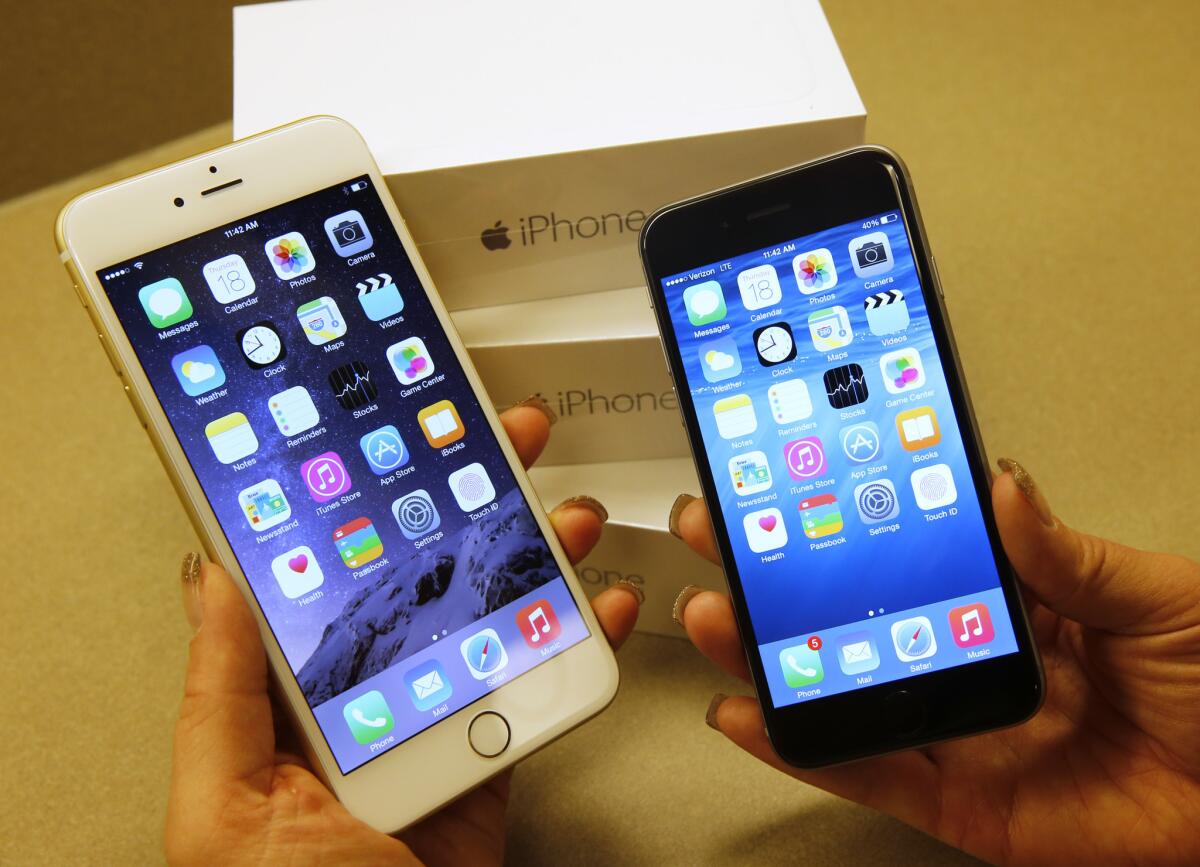Opinion: Sorry, Apple fanatics, but the new iPhones aren’t exceptional

It’s happening again. All around me, at social events, on social media and in publications I enjoy, people are brimming with enthusiasm for new Apple products. And I just don’t get it.
No, I am not a hater of Apple in general, and yes, I do recognize the aesthetic beauty of Apple’s devices. I appreciate how the coders in Cupertino have pushed personal computing forward over the last 30 years in important ways, and how many non-Apple products owe debts to the paths that Apple has blazed (as their patent lawyers will gladly remind you). And I don’t care what people say, that U2 stunt they just did was awesome, backlash be damned.
Still, when a company gets major media attention for releasing a device with “new” features that its competitors have had for years, I find it kind of weird. When the company’s advocates defend it by pointing to their phone’s “premium feel,” I find it hard not to point out that for all its “premium”-ness, it’s still less durable than my Moto X — which, when I got it, was half the price of the iPhone. I can also operate my phone without touching it while driving through L.A. traffic, a year-old Moto X feature that the iPhone is only getting now. To me, it just doesn’t make much sense to spend more money on a device that does fewer things.
Of course, some people don’t want a phone that can do a million things; they want a phone that does what they need it to do and is dead simple to use. But iPhones aren’t the simplest phones around; that honor goes to Microsoft’s Windows phones, which tech critics love but that still sell poorly. There are also clever programs that could be loaded onto any Android phone that make the entire device “easy enough for grandma to use.”
More bothersome to me than the things an iPhone can’t do, however, are the things that Apple won’t let it do. Apple is well known for its stringent oversight of its app store, blocking apps and other content that it considers objectionable. Unlike Google, which allows users to freely “side load” apps from outside Android’s app store, iPhones cannot run apps from outside Apple’s iTunes store unless the user goes through a hacking process called “jailbreaking.” Enforcing these restrictions are, of course, well within Apple’s rights as a private company, but I find it a little odd that my progressive and libertarian friends are so willing to look the other way on what one could argue amounts to corporate censorship.
The weirdest thing to me about Apple, however, is this: To the company’s devotees, nothing I just wrote matters. At all. They know they’re paying a premium, they know there are other options, and they don’t care. For them, the iPhone is a piece of identity, a cultural signifier, an inviting sanctuary in an uncertain technological world. From my personal experience, suggesting a non-Apple product to an Apple fan will usually be met with some combination of annoyance, dismissiveness and defensiveness: the iPhone is the correct answer, period.
And so, as Apple fever sweeps the nation once again with Friday’s release of the iPhone 6 and iPhone 6 Plus, I am once again on the outside looking in, feeling the way you feel deep down when you witness acts of devotion by adherents of another faith: you do your best to respect and find the beauty in it, but deep down, you just can’t escape the feeling that it’s all kind of strange.
Joel Silberman is a Los Angeles-based writer and the producer of such viral Web videos as “Legitimate Rape” Pharmaceutical Ad (TW) and Kids Do The News. Follow him on Twitter @Wordpeggio.
Follow the Opinion section on Twitter @latimesopinion
More to Read
A cure for the common opinion
Get thought-provoking perspectives with our weekly newsletter.
You may occasionally receive promotional content from the Los Angeles Times.






